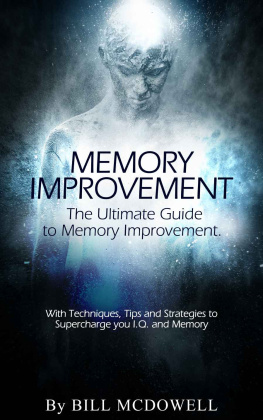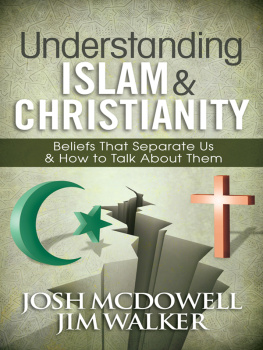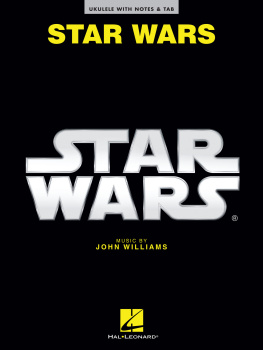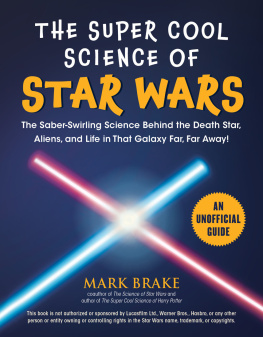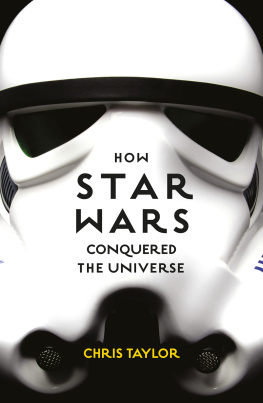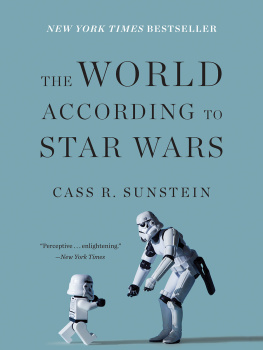
Also by JOHN C. MCDOWELL
The Politics of Big Fantasy: The Ideologies of Star Wars, The Matrix and The Avengers (McFarland, 2014)
Identity Politics in George Lucas Star Wars
John C. McDowell

McFarland & Company, Inc., Publishers
Jefferson, North Carolina
LIBRARY OF CONGRESS CATALOGUING DATA ARE AVAILABLE
e-ISBN: 978-1-4766-2450-1
BRITISH LIBRARY CATALOGUING DATA ARE AVAILABLE
2016 John C. McDowell. All rights reserved
No part of this book may be reproduced or transmitted in any form or by any means, electronic or mechanical, including photocopying or recording, or by any information storage and retrieval system, without permission in writing from the publisher.
Front cover illustration from a photograph by Brendan Hunter (iStock)
McFarland & Company, Inc., Publishers
Box 611, Jefferson, North Carolina 28640
www.mcfarlandpub.com
To my father and mother,
John and Elizabeth McDowell
To Sandra and my children,
Archie, Jonathan, Joseph,
Margaret (Meg), and Robert
Acknowledgments
Among my many faults is that of being unable to turn down invitations. Given the number of research projects I have been working on over recent years and the plans for developing my critical reflections on narratives of hope, and hopefully into a Gifford Lecture series, I had decided that Star Wars would not be a series of texts that I would intellectually return to any time soon. However, on the second invitation to consider composing a book on George Lucas magnum opus the seeds of this present set of studies began to take shape, especially since I hoped to tackle the material prior to its impending Disneyfication (I have ignored, for example, the new animated series Star Wars Rebels). As much as J.J. Abrams has been successful in directing entertaining spectacles, I tend to find his movies quite philosophically uninteresting. My renewed attention to Lucas version of the saga has permitted me to develop further the kind of critical intellectual reflection that between 2005 and 2007 resulted in my The Gospel According to Star Wars, but to do so now without the potential for bemusing an audience that purchased the book in order to hear the [Christian] Gospel through the Star Wars saga. My apologies to those who readers who simply bought the wrong book, and were consequently caught in the intricacies of discussions of appeals to myth in modernity, of the burgeoning of forms of religious pluralism in the mid to late twentieth century, of Manichaean politics, of the nature of the good life, of theological reflection and argument, and so on.
I am grateful for the opportunity to make research connections with my new colleagues at the University of Divinity. It is quite a relief to work again in a supportive environment, one in which the appeal to excellence in intellectual work appropriately remains a virtue rather than a tool of marketing rhetoric, over which there persists some excitement, and in which the public impact of ones work is taken seriously beyond the rhetoric encouraged by corporate power. It has become easier in Melbourne to answer the pressing question what are universities for? in terms that are not self-referential or financial but involve impact factors, community accountability, and academic responsibility. This book might be considered a celebration of the work of all those who risk their personal security in order to steal the plans to the ultimate power in the universe. Despite my serious concerns over both the intellectual ecology and the rhetorical masking of not only pervasive academic ordinariness but instances of serious unprofessionalism elsewhere, I still miss conversing with Dr. Fergus King, Prof. Mario Manichello and Dr. Chris Falzon. Drs. Scott Kirkland and Ashley Moyse have emerged as humble, enthusiastic and distinctly high quality and intellectually ambitious scholars who have stood out from those around them. Regular conversations with them have been invigorating, and they have particularly kept me stimulated with regard to reflecting in some depth on products of popular culture. They continually resist the lure of the Sith. I already greatly miss those football clubs with whom I have been involved for almost six years, Lambton Jaffas and St. Johns Football Clubs, especially the lads of the 14/1s for whom I have had the honor of coaching for the past three seasons. Go Invincibles!
It is, however, with sorrow that two friends are now to be acknowledged in memorium, Drs. Mike Purcell and Jason Wardley. Jason was a source of valuable information when I first turned to writing on popular culture at Edinburgh in 2005, and Mike was instrumental in enabling me to settle into my new working environment there some five years earlier. Both are sorely missed and very warmly remembered. I would also like to thank the two anonymous readers of my first draft for their thoroughness and useful suggestions.
Once more, however, it is the support of my family for which I am most grateful: my wife Sandra, and children Archie, Jonathan, Joseph, Meg (Margaret) and Robert; my gracious in-laws, John and Margaret Carrick; and my parents, John and Elizabeth McDowell. My maternal grandfather Thomas Manson passed away late in 2013. He had been a tremendous inspiration to me, and I hope that in everything I do I will honor the legacy of this self-deprecating man.
Chapters 1 and 2 substantially expand and redevelop the argument from
John C. McDowell, Wars Not Make One Great: Redeeming the Star Wars Mythos from Redemptive Violence, Journal of Religion and Popular Culture 22.1 (2010), http://www.usask.ca/relst/jrpc/art22(1)-WarsNotGreat.html and
John C. McDowell, The Gospel According to Star Wars: Faith, Hope and the Force Louisville, KY: Westminster John Knox Press, 2007, ch. 6.
I thank the respective publishers for their permission to use and redevelop the materials.
Preface
Prefaces to works on popular culture, particularly those focused on the cinema, occasionally begin with nostalgic reflection. I did the same in The Politics of Big Fantasy. As Gilbert Perez observes, we respond to the movies of our youth with something like the feelings of first love, and it is frequently to these that one turns when doing critical work on cinema. However, the danger is that such an approach might suggest that the intellectual work being done in this area is not of a serious and rigorous kind. Indeed, it remains the case that those engaged in studying popular culture in many academic institutions feel pressure to justify themselves in ways not shared by those working with more culturally classic texts, such as those my doctoral work considered (tragic drama and hope in the theology of Karl Barth). Moreover, the nostalgic mood is not a particularly useful catalyst for generating important socio-political analysis with some moral urgency. Consequently, this present Preface will take a markedly different direction in order to better ground the ethico-political concerns that provoke the studies undertaken in this book.
In The Politics of Big Fantasy I explained that there were two main reasons for studying the three sets of movies under consideration there in the way I did. This current set of studies is focused more particularly on Lucas Star Wars saga, but it emerges out of a similar sensibility to that animating my 2014 study, and it continues the intellectual labor undertaken there. Firstly, I indicated in the earlier volume that it is important to illuminate the political ideologies of the movies studied, while simultaneously being attentive to any possible folds that the material may provide. The studies in the present book derive from, among other things, a sense that there remains a real political need to exact representations of identity, and the ideological framing for even the very consideration of what identity is and means, to modest critical analysis for the future of hope and planning in the project of human flourishing. As critics rightly observe,
Next page
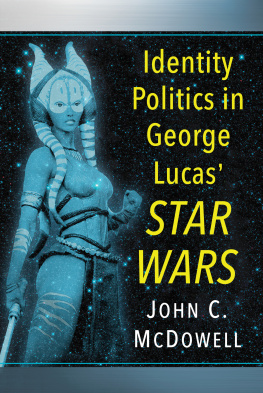
![McDowell - God-Breathed]: the Undeniable Power and Reliability of Scripture](/uploads/posts/book/219249/thumbs/mcdowell-god-breathed-the-undeniable-power-and.jpg)
